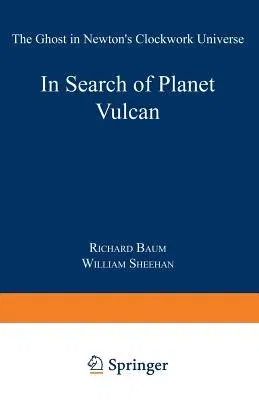Presented for the first time in popular form is the fascinating true
story of the search for the phantom planet Vulcan. As with legends of
"the lost continent of Atlantis, " scientists and dreamers alike have
sought to prove that Vulcan is more than just a myth. Historians of
astronomy Richard Baum and William Sheehan have combed the continents,
digging through dusty letters and journals, to unravel this mysterious
and captivating tale. The planet first assumed a shadowy reality against
a backdrop of war and revolution early in the nineteenth century. Le
Verrier, the autocratic Director of the Paris Observatory, had unveiled
a problem with the motion of the planet Mercury. The indications were of
a planet closer to the sun than Mercury. Incredibly, the prediction was
immediately fulfilled by an obscure French country doctor using no more
than a homemade telescope. The planet, named for the Roman god of fire,
was no sooner discovered than it was lost. Still it reappeared often
enough to tantalize even skeptics into considering its shadowy existence
possible. This fast-paced tale follows the exploits of Le Verrier, and
later of his followers, in a pursuit of his unbridled obsessions: to
extend the universality of Newton's Laws, to prove Vulcan's existence,
and to secure his place in history as one of the greatest astronomers of
his time. Stranger than fiction, the story reaches an exciting climax in
the final showdown in the unlikeliest of places: America's Wild West.
Like gunslingers at high noon, determined astronomers of the opposing
camps brave Indians and the elements in their attempt to prove once and
for all whether the planet exists. They congregate with some of the
mostillustrious names of their time for the final test: a grand eclipse
of the sun.


